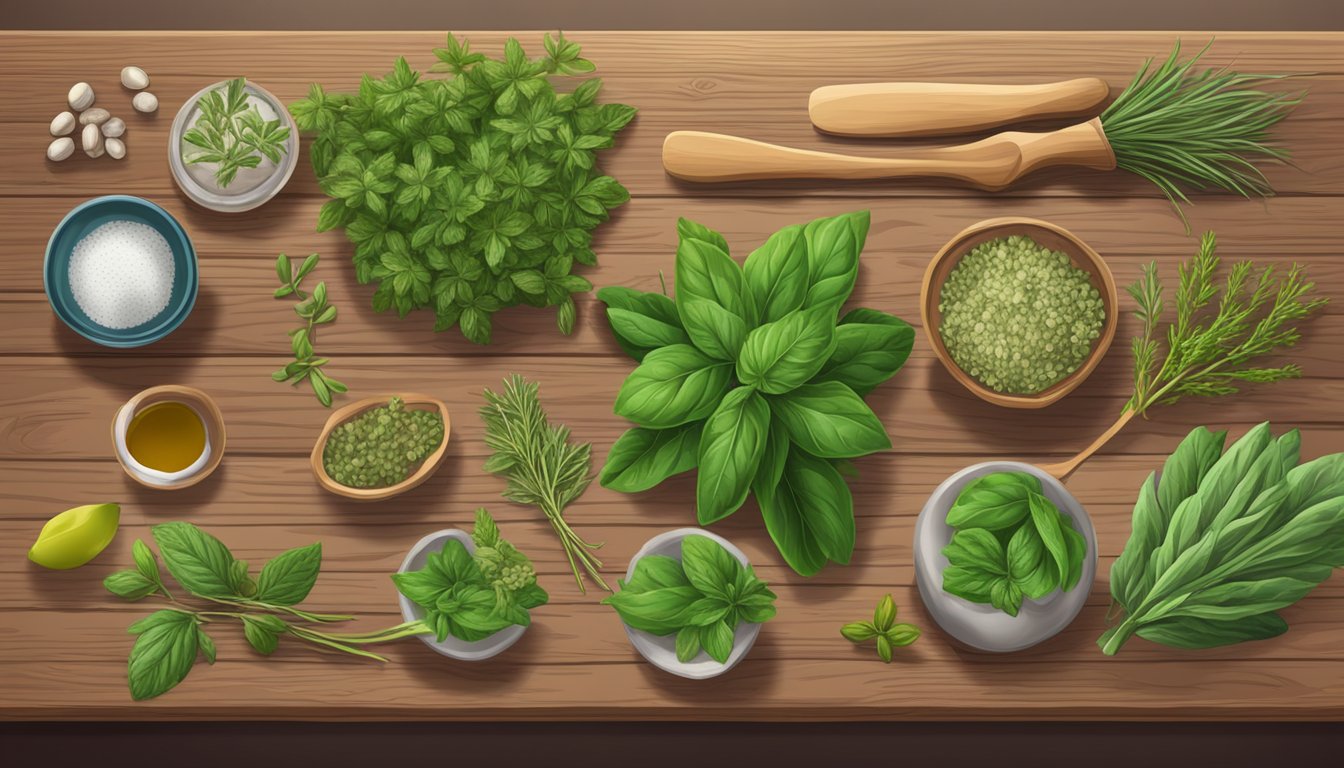TheHerbProf.com is a treasure trove of knowledge for those interested in natural healing and herbal remedies. The website is run by Paul Johnston MD. A naturopathic who has not only received extensive education in the field but also has personal experience in self-healing.
Herbal treatments have a long history of being used to soothe headaches. As an individual who has experienced regular headaches, I have experimented with a variety of solutions, encompassing both over-the-counter and natural remedies. While the effectiveness of remedies varies, I have discovered that herbal treatments can significantly diminish the severity and occurrence of headaches. But do you know what’s the most popular herbal remedies for headaches?
One of the most popular herbal remedies for headaches is ginger. Ginger has anti-inflammatory properties that can help reduce the pain and discomfort associated with headaches. It also helps to improve blood circulation, which can help to reduce the intensity of headaches. You can consume ginger in many different forms, including ginger tea, ginger capsules, or by adding fresh ginger to your meals.
Another effective herbal remedy for headaches is feverfew. Feverfew is a plant that has been used for centuries to treat headaches and migraines. It contains compounds that can help to reduce inflammation and pain, and it can also help to prevent the onset of headaches. Feverfew can be consumed in many different forms, including capsules, teas, or as a fresh herb added to your meals.
Types of Herbs That Can Help with Headaches
If you’re looking for natural remedies to help with headaches, there are several types of herbs that can be effective. Here are some of the most commonly used herbs for headache relief:
Butterbur – Herbal Remedies For Headaches
Butterbur is a plant that has been used for centuries to treat headaches. It contains compounds that can help to reduce inflammation and relieve pain. Studies have shown that butterbur can be effective in reducing the frequency and severity of migraines. However, it’s important to note that butterbur can have side effects, including upset stomach and drowsiness.
Peppermint
Peppermint is a refreshing herb that can help to relieve tension headaches. It contains menthol, which has a cooling effect on the body and can help to reduce pain and inflammation. Peppermint can be consumed in the form of tea, or applied topically in the form of essential oil.
Willow Bark – Herbal Remedies For Headaches
Willow bark is a natural pain reliever that has been used for thousands of years. It contains salicin, which is similar to aspirin and can help to reduce pain and inflammation. Willow bark can be consumed in the form of tea or taken as a supplement.
Ginger
Ginger is a powerful anti-inflammatory herb that can help to reduce pain and inflammation. It contains compounds called gingerols and shogaols, which can help to block pain signals in the brain. Ginger can be consumed in the form of tea or taken as a supplement.
Lavender – Herbal Remedies For Headaches
Lavender is a calming herb that can help to relieve tension headaches. It has a soothing effect on the body and can help to reduce stress and anxiety. Lavender can be consumed in the form of tea, or applied topically in the form of essential oil.
Turmeric
Turmeric is a spice that has been used for centuries to treat a variety of ailments, including headaches. It contains curcumin, which has powerful anti-inflammatory properties. Turmeric can be consumed in the form of tea or taken as a supplement.
Overall, there are many types of herbs that can be effective in treating headaches. However, it’s important to speak with a healthcare provider before using any herbal remedies, especially if you are pregnant, breastfeeding, or taking medication.
Other Treatment Options for Headaches

When it comes to treating headaches, there are many options available beyond herbal remedies. Here are some other treatment options that may help alleviate headache symptoms:
Rest – Herbal Remedies For Headaches
Getting enough rest is crucial for preventing headaches. Lack of sleep or poor sleep quality can trigger headaches, so it’s important to establish a regular sleep schedule and make sure you’re getting enough sleep each night. If you feel a headache coming on, taking a nap or simply resting in a quiet, dark room can also help alleviate symptoms.
Hot/Cold Therapy
Applying a hot or cold compress to the affected area can help reduce headache pain. A cold compress can help reduce inflammation and numb the area, while a hot compress can help relax tense muscles and improve circulation. Experiment with both to see which works best for you.
Massage – Herbal Remedies For Headaches
Massaging the neck, shoulders, and scalp can help relieve tension and reduce headache pain. You can try self-massage techniques or seek out a professional massage therapist for more targeted treatment.
Acupressure
Acupressure is a traditional Chinese medicine technique that involves applying pressure to specific points on the body to alleviate pain and promote healing. There are several acupressure points that are believed to help relieve headache symptoms, including the temples, the base of the skull, and the space between the thumb and index finger.
Managing Stress
Stress is a common trigger for headaches, so learning to manage stress effectively can help reduce the frequency and severity of headaches. Practicing relaxation techniques like deep breathing, meditation, or yoga can be helpful, as can engaging in regular exercise and maintaining a healthy diet.
While herbal remedies can be effective for treating headaches, it’s important to explore all available treatment options to find the approach that works best for you. By incorporating a variety of strategies into your headache management plan, you can increase your chances of finding relief and reducing the impact of headaches on your daily life.
When to Contact a Doctor – Herbal Remedies For Headaches
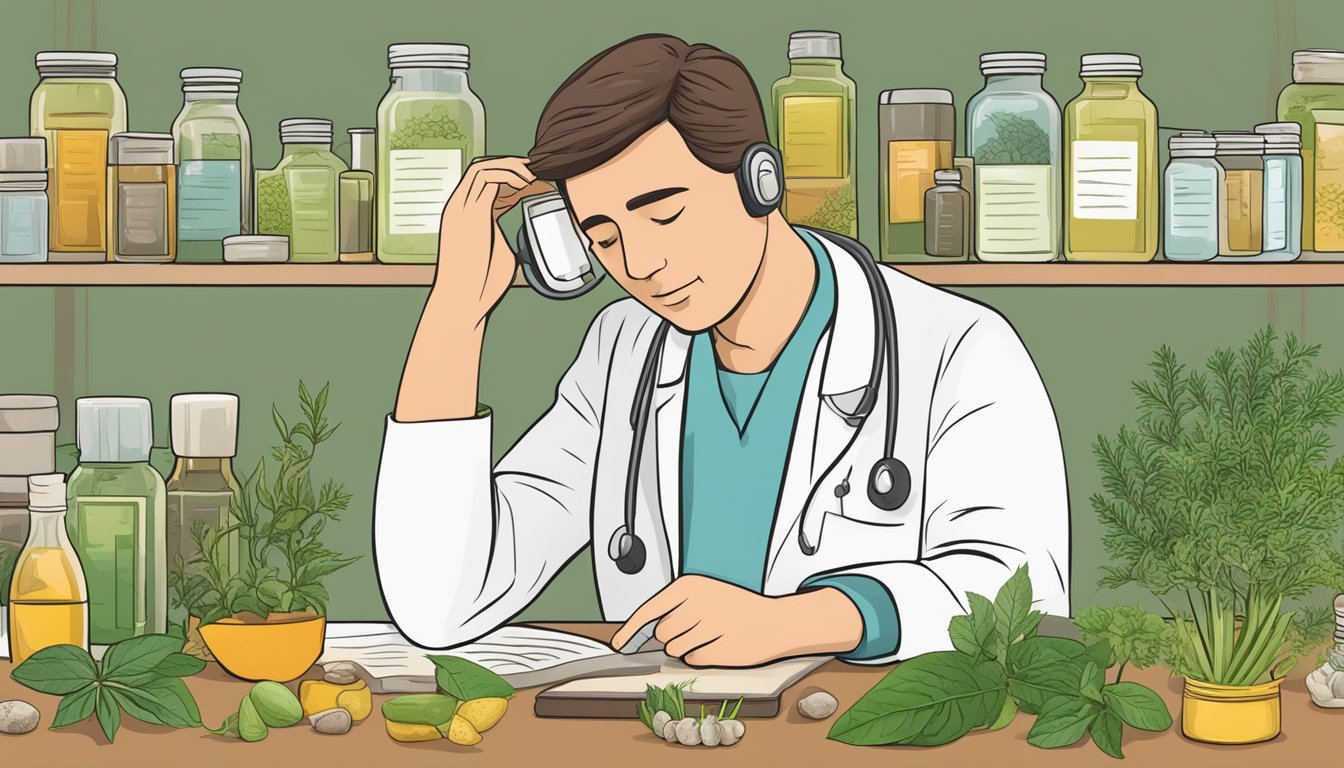
While herbal remedies can be effective in relieving headaches, sometimes they may not be enough. It’s important to know when to seek medical attention for persistent or severe headaches, as well as for symptoms of low progesterone or side effects of medications.
Persistent/Severe Headaches
If your headache persists for more than a few days or is particularly severe, it’s important to see a doctor. This could be a sign of a more serious underlying condition, such as a brain tumor or aneurysm. Additionally, if your headache is accompanied by other symptoms such as fever, vomiting, or confusion, seek medical attention immediately.
Symptoms of Low Progesterone
If you experience headaches around the same time each month, particularly around the time of your menstrual cycle, it could be a sign of low progesterone levels. Other symptoms of low progesterone include mood swings, irregular periods, and infertility. If you suspect you may have low progesterone, it’s important to talk to your doctor to determine the underlying cause and appropriate treatment.
Side Effects of Medications
Some medications can cause headaches as a side effect. If you’ve recently started a new medication and are experiencing headaches, talk to your doctor about whether it could be a side effect. They may be able to adjust your dosage or switch you to a different medication to alleviate your symptoms.
In general, if you’re experiencing persistent or severe headaches, it’s always a good idea to consult with a healthcare professional to determine the underlying cause and appropriate treatment.
Preventive Measures for Headaches – Herbal Remedies For Headaches
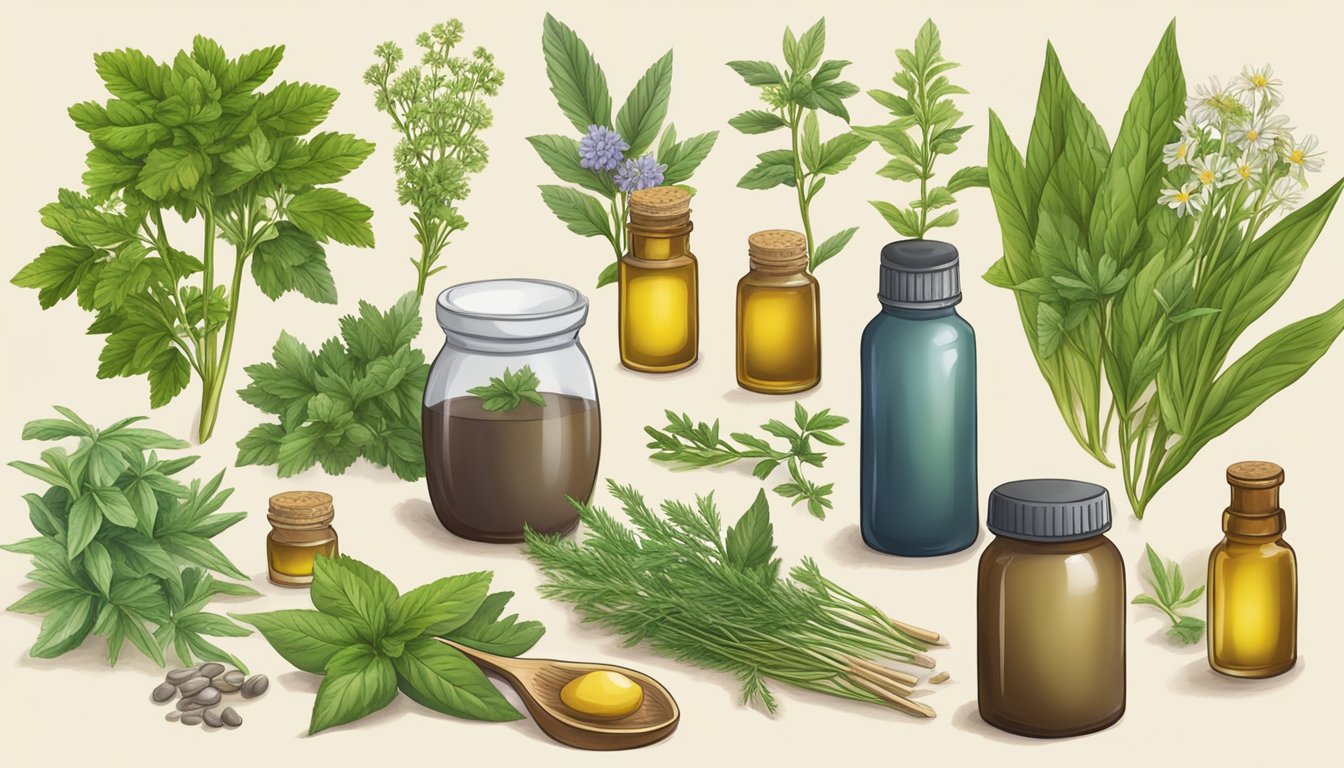
As someone who suffers from headaches, I have found that taking preventive measures can be just as important as finding a remedy. Here are some preventive measures that have helped me:
Eating Small, Frequent Meals
Skipping meals or eating irregularly can trigger headaches. I have found that eating small, frequent meals throughout the day can help prevent headaches. It’s important to include a mix of carbohydrates, protein, and healthy fats in each meal to keep blood sugar levels stable.
Staying Hydrated – Herbal Remedies For Headaches
Dehydration is a common trigger for headaches. I make sure to drink plenty of water throughout the day to stay hydrated. It’s also important to avoid drinks that can dehydrate you, such as alcohol and caffeine.
Regular Exercise
Regular exercise can help prevent headaches by reducing stress and tension in the body. I try to get at least 30 minutes of exercise every day, whether it’s a brisk walk or a yoga class.
Avoiding Trigger Foods – Herbal Remedies For Headaches
Certain foods can trigger headaches in some people. For me, these include processed foods, dairy products, and foods that contain MSG. I try to avoid these foods as much as possible to prevent headaches.
Using Biofeedback
Biofeedback is a technique that can help you learn to control your body’s response to stress and tension, which can trigger headaches. I have found that using biofeedback to relax my muscles and reduce stress can be helpful in preventing headaches.
By taking these preventive measures, I have been able to reduce the frequency and severity of my headaches. It’s important to find the preventive measures that work best for you and to make them a part of your daily routine.
Before You Go – Herbal Remedies For Headaches
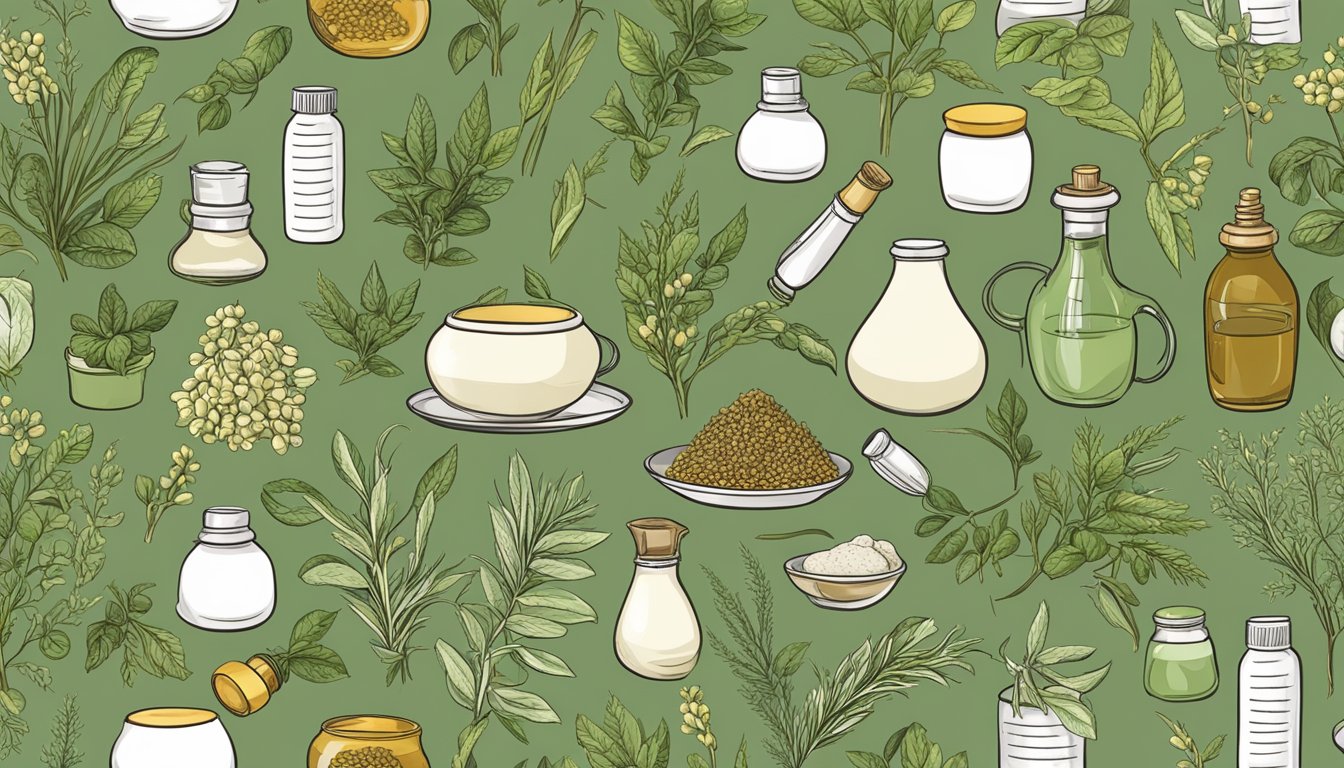
Herbal remedies can be an effective alternative for treating headaches. However, it is important to note that not all herbal remedies are safe or effective for everyone. It is always best to consult with a healthcare professional before trying any new treatment.
Based on the research, some of the most promising herbal remedies for headaches include feverfew, butterbur, and magnesium. Feverfew has been shown to reduce the frequency and severity of migraines, while butterbur has been found to be effective in preventing migraines. Magnesium has also been shown to be effective in reducing the frequency and severity of migraines.
It is important to note that not all herbal remedies are regulated by the FDA. Therefore, it is important to do your research and only purchase herbal remedies from reputable sources. Additionally, it is important to follow the recommended dosage instructions and to discontinue use if any adverse effects occur.
Overall, while herbal remedies can be an effective alternative for treating headaches, it is important to approach them with caution and consult with a healthcare professional before trying any new treatment.
References – Herbal Remedies For Headaches
Little Herb Encyclopedia, by Jack Ritchason; N.D., Woodland Publishing Incorporated, 1995
The Ultimate Healing System, Course Manual, Copyright 1985, Don Lepore
Planetary Herbology, Michael Tierra, C.A., N.D., Lotus Press, 1988
Handbook of Medicinal Herbs, by James A. Duke, Pub. CRP Second Edition 2007
The Complete Medicinal Herbal, by Penelope Ody, Published by Dorling Kindersley
Check the Following Articles!
Herbal Remedies for Allergies: Best Natural Solutions
Herbalist Medicine: The Best Way To Heal
Herb Garden Indoor: Growing Fresh Herbs All Year-Round
Linking Herbal Remedies For Headaches to TheHerbProf
Herbal Remedies For Headaches and TheHerbProf are like two peas in a pod! They complement each other perfectly, providing a holistic approach to headache relief.
At TheHerbProf, we’re all about herbs, plants, and natural remedies. Our website is a treasure trove of information on all things herbal.
Now, let’s talk about headaches. They’re a common issue that many people face. But don’t worry, nature has got us covered! There are numerous herbal remedies for headaches that can help alleviate symptoms.
When you combine the knowledge from our website with these herbal remedies, you’re equipping yourself with a powerful toolkit to combat headaches.
For instance, did you know that certain herbs can help alleviate headache symptoms? That’s right! Herbs like basil, rosemary, and mint are known for their pain-relieving properties. You can find more about these herbs on our website.
So, whether you’re sipping on a cup of herbal tea or using a herbal salve, remember that TheHerbProf is here to guide you on your journey to better health.
And remember, laughter is the best medicine! So, keep a light heart and a healthy body. Happy herb-ing!
Frequently Asked Questions – Herbal Remedies For Headaches
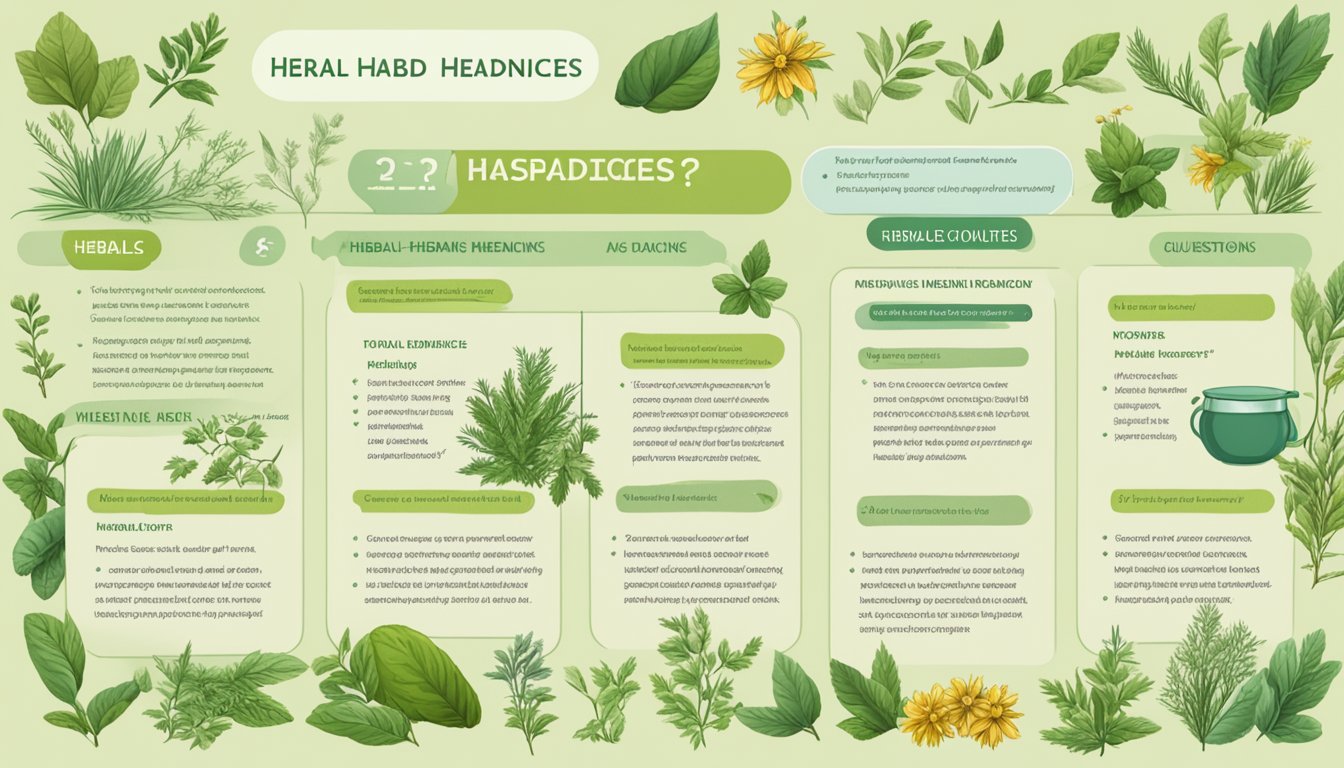
How can I relieve a headache without medication?
There are several natural ways to relieve a headache without medication. One effective method is to apply a cold compress to the affected area. You can also try practicing relaxation techniques such as deep breathing, meditation, or yoga. Another option is to massage your temples or the base of your neck. Additionally, staying hydrated and getting enough sleep can help prevent headaches.
What are some effective home remedies for headaches?
There are many effective home remedies for headaches. One popular remedy is to drink ginger tea, as ginger has anti-inflammatory properties that can help reduce pain. Another option is to apply peppermint oil to your temples, as it has a cooling effect that can help relieve tension headaches. Additionally, taking a warm bath or shower can help relax your muscles and ease headache pain.
Are there any Chinese herbs that can help with migraines?
Yes, there are several Chinese herbs that can help with migraines. One commonly used herb is feverfew, which has been shown to reduce the frequency and severity of migraines. Another herb is ginger, which can help reduce inflammation and pain associated with migraines. Additionally, ginkgo biloba has been shown to improve blood flow to the brain and reduce the incidence of migraines.
Can massage therapy help with headaches?
Yes, massage therapy can be an effective way to relieve headaches. Massage can help reduce muscle tension and improve blood flow, which can help alleviate headache pain. Additionally, massage can help promote relaxation and reduce stress, which are common triggers for headaches.
What are some natural ways to get rid of a headache quickly?
There are several natural ways to get rid of a headache quickly. One effective method is to apply a cold compress to the affected area. You can also try drinking a cup of coffee or tea, as caffeine can help constrict blood vessels and reduce headache pain. Additionally, taking a warm bath or shower can help relax your muscles and ease headache pain.
Are there any Ayurvedic herbs that can help with migraines?
Yes, there are several Ayurvedic herbs that can help with migraines. One commonly used herb is brahmi, which has been shown to improve cognitive function and reduce the frequency of migraines. Another herb is ashwagandha, which can help reduce stress and anxiety, which are common triggers for migraines. Additionally, ginger and turmeric can help reduce inflammation and pain associated with migraines.
